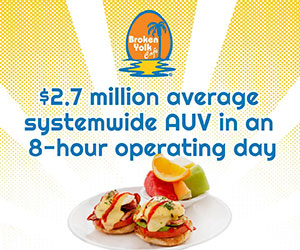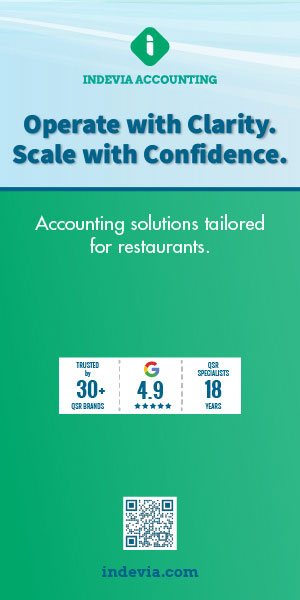Benefits Of Employee Engagement Surveys

"The Millennial Generation loves itself. Its members have bad manners, contempt for authority, no respect for older people, and talk, tweet, or text nonsense when they should be working. They show no respect for the members of previous generations with whom they work; they contradict recognized authorities and experts; and they tyrannize parents, managers, and colleagues who are deficient in knowledge and practical application of social media and contemporary technology."
First, let me apologize to Socrates, a Greek philosopher who lived sometime around 450 BC, for having updated a quote often attributed to him about the generation that followed him into Greek society. While Socrates may not be around any longer, the human race is still going strong, and each generation seems to say to itself "Kids! What's the matter with kids today? Why can't they be like we were, perfect in every way, what's the matter with kids today?" (from the musical "Bye, Bye Birdie")
Pundits and trainers everywhere are making a financial killing convincing organizational and business leaders that the Millennials have to be the greatest threat to the human race since the onset of the Bird Flu epidemic. According to the pundits, the Millennials wants and needs are so different from those of previous generations that workplace harmony may be next to impossible. That will be true until the pundits of the Millennial Generation pronounce that it is the Post Millennial Generation that should be of greatest concern; and they will make those pronouncements with eerily similar words to those used by Socrates more than 2,500 years (approximately 125 generations) earlier.
The truth about generations is that human behavior, and that includes wants and needs, has stayed virtually unchanged - perhaps completely unchanged - since the onset of human civilization, however long ago that was. Typically, we categorize those overriding needs as falling into one of these categories:
Status |
Praise |
Do those look and sound familiar to you? They should. The Lost Generation, the Greatest Generation, the Baby Boomers, the Gen Xers, the Millennials, and the as yet unnamed next generation (I call them the "thumb" generation) all look for ways to satisfy these needs.
Every workplace/organizational culture makes it more or less easy or difficult to find the personal satisfaction and sense of fulfillment currently associated with only the Millennials. Increased longevity has created a phenomenon that now - especially in family owned businesses - finds three, four, and sometimes five generations alive and working in the same culture at the same time; and that creates a fruit salad of subcultures all seeking to satisfy the same needs at the same time.
So whether you're talking about Millennials, Boomers, Gen Xers, or some other generation working together in your multi-unit franchisee organization, you've got to apply some basic marketing and communication principles to reach a variety of audiences. Here are some suggestions about how to do this.
- Use an employee engagement survey that gives you some specific, unfiltered demographic information about your employees concerning their reactions to: leadership, growth opportunities, communications, working conditions, and compensation. Since we're talking about generations, collect and sort the data based on as many variables as are important to you. Just be sure to include age demographics that allow age sorts that look something like this: Under 25; 26 - 40; 41 - 55; 56 and over.
- Make sure the questions used in the engagement survey are built around the twelve common needs to all generations. Generally, these needs fall into four broad categories of "wants":
- Inspiration (a sense of purpose for my position)
- Autonomy (some control in how I meet my responsibilities)
- Education (training and development so that I can be good at what I do)
- Communication (so that I know whether or not I am doing my job well)
- Share the results with the entire organization. Don't worry about what they might think. They just told you when they completed the survey.
- Expect and embrace the differences between ownership/management responses and those of everyone else in the organization. Consider the survey results as a "360" performance review on the organization from the people who are closest to it - the employees. Pay particular attention to the differences among the age categories.
- Create and meet with focus groups to understand what the results mean from the perspective of the participants. You already know what status, cooperation, power, and the other nine needs mean to you. Now you need to know what they mean to the people working for you.
- After the focus groups, develop three categories of actions steps:
- This is what we're going to do differently within the next 6 to 18 months and why we're going to do it.
- This is what we will consider doing differently within the next 18 to 36 months (remember the why).
- This is what will stay the same, and why.
- Make it happen. It is as important to follow through with your employees as it is to follow through with customers, manufacturers, bankers, and any other stakeholders in your business.
As a business owner, do you have to go to this much trouble to understand and communicate with your employees, regardless of which generation someone says they belong to? No, of course not. You can completely ignore what's important about personal satisfaction, autonomy, education, and communication with those who contribute to your success. Just remember that the growth of your multi-unit franchisee business and ultimately succession is predicated upon success. If you want to build a sustainable multi-generational business, knowing what is important to the people who will help get you there greatly increases the odds, whether they are Millennials or some group even more terrifying to their elders. You can either take a chance or you can take charge. How lucky do you feel?
Dan Schneider, MA, CSP is a partner/director of The Rawls Group, a business succession planning firm, and a board member of the International Succession Planning Association (ISPA) For additional information email [email protected] or visit www.rawlsgroup.com.
Share this Feature
Recommended Reading:
| ADVERTISE | SPONSORED CONTENT |
STAY CONNECTED
The Multi Unit Franchisee Newsletter shares weekly curated ideas, strategies, and solutions for today's high-achieving franchisees.
FRANCHISE TOPICS
- Multi-Unit Franchising
- Get Started in Franchising
- Franchise Growth
- Franchise Operations
- Open New Units
- Franchise Leadership
- Franchise Marketing
- Technology
- Franchise Law
- Franchise Awards
- Franchise Rankings
- Franchise Trends
- Franchise Development
- Featured Franchise Stories
| ADVERTISE | SPONSORED CONTENT |

$50,000
$100,000





 The multi-unit franchise opportunities listed above are not related to or endorsed by Multi-Unit Franchisee or Franchise Update Media Group. We are not engaged in, supporting, or endorsing any specific franchise, business opportunity, company or individual. No statement in this site is to be construed as a recommendation. We encourage prospective franchise buyers to perform extensive due diligence when considering a franchise opportunity.
The multi-unit franchise opportunities listed above are not related to or endorsed by Multi-Unit Franchisee or Franchise Update Media Group. We are not engaged in, supporting, or endorsing any specific franchise, business opportunity, company or individual. No statement in this site is to be construed as a recommendation. We encourage prospective franchise buyers to perform extensive due diligence when considering a franchise opportunity.